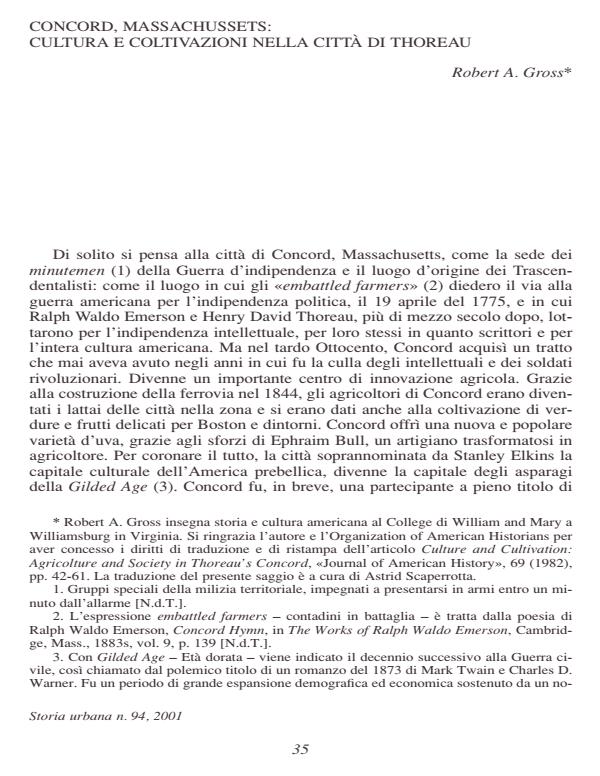Corcord, Massachusetts: cultura e coltivazioni nella città di Thoreau
Journal title STORIA URBANA
Author/s Robert Gross
Publishing Year 2002 Issue 2001/94 Language Italian
Pages 19 P. File size 83 KB
DOI
DOI is like a bar code for intellectual property: to have more infomation
click here
Below, you can see the article first page
If you want to buy this article in PDF format, you can do it, following the instructions to buy download credits

FrancoAngeli is member of Publishers International Linking Association, Inc (PILA), a not-for-profit association which run the CrossRef service enabling links to and from online scholarly content.
The town of Concord, Massachusetts, is usually thought of as the home of minutemen and trascendentalists. But in the late nineteenth-century, Concord became a leading center of agricultural improvement. Thanks to the coming of railroad in 1844, Concord farmers played milkman to the Boston area expanding meadows and pasture, and chopping the remaining woods. The town was the nursery of a popular new variety of grape and became the asparagus capital of the Gilded Age. This agricultural revolution forms the central theme of this essay. There was little the small farmer could do to survive but move to cheaper lands farther west or adapt as best he could do to the market. Against the new system of agricultural capitalism that oppressed nature and men raised Henry David Thoreau, the apostle of the wilderness. He attacked the extending division of labor in society, the intensification of work, the commercialization of life, the inequality of the results, the decay of the spirit and the destruction of the wilderness. But in the end the critique proved far more powerful than the alternative. The essay is reprinted from the «Journal of American History», 69 (1982), pp. 42-61, and updated by the author.
Robert Gross, Corcord, Massachusetts: cultura e coltivazioni nella città di Thoreau in "STORIA URBANA " 94/2001, pp , DOI: